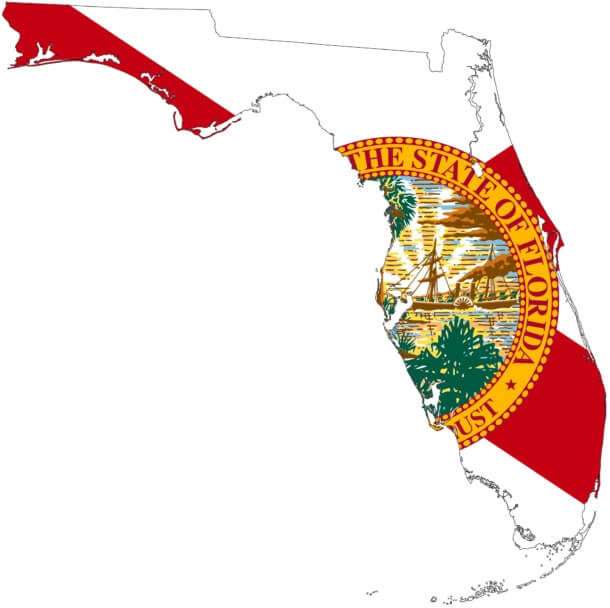by Ryan McMaken
From the perspective of the state, one of the benefits of growing larger geographically is that bigness makes it more difficult for residents to emigrate or cross over borders to escape taxes.
In his writings on the origins of the “European miracle” that led to the continent’s economic success, Ralph Raico has noted the importance of small states in Europe and the ability to easily emigrate from one political jurisdiction to another. This free movement has been essential in forming a free and open economy and society. Raico contrasts Europe with Imperial China where the state was more easily able to monopolize both natural and human resources through its large size.
In an earlier article at mises.org, we also explored how the creation of a larger number of (necessarily smaller) states creates more options for residents of the existing states, and thus increases the potential for fruitful migration and escape from overweening state power.
Larger states, geographically speaking, work in the opposite direction of this, limiting options for relocation, and placing greater barriers in the way of residents who might be looking to change the the conditions under which they live.
In the case of the United States, for example, the sheer size of the United States requires a potential emigrant to move hundreds of miles from friends and family simply to live under a different national government. Even worse for the potential immigrant is that, in the case of the US, there are only two bordering states. This means, unless the emigrant can gain entry into one of those two neighboring states, he may potentially need to move thousands of miles from friends and family.
The magnitude of such a move means that an emigrant, in order to visit family members, or conduct business in his or her community of origin, must endure great expense in terms of travel costs and time.
On top of this, given that 80 percent of the world’s native English-speakers live in the United States, any potential emigrant is also likely to need to learn a new language, which is no small affair.
This, of course, helps illustrate the absurdity of claims by nationalists that any critic of the local state should simply “love it or leave it” and move somewhere else. Even if that person can gain entry into another state — something that is by no means guaranteed — he would then need to separate himself from friends and family by hundreds or thousands of miles, learn a new language, and be prepared to potentially spend thousands of dollars and take time off from work simply to visit a sick relative.
Not surprisingly, then, virtually no one emigrates based on political views alone because the quality of daily human life depends largely on a countless number of connections to family, social networks, and business associations that tend to depend on physical proximity to others. Leaving these social and economic networks can come at a great personal cost, and the further one must move from them, the greater the cost may be.
Thus, the more a state can make cross-border travel expensive, tedious, or time consuming, the more that state can easily impose a wide variety of disincentives to emigration.
For these reasons, among others, advocates for greater freedom in the movement of goods, persons, and capital, should seek to limit and shrink the size of states. Given that states, by their very nature, rely on extending a monopoly on coercion over a specific area, one can say that smaller states are less state-like. Larger states, by contrast, act more like the quintessential state since they are able to effect greater consolidation of monopoly power.
Mises’s View of State and Society
Ludwig von Mises believed that states, in theory, could be reduced in size to a single household. That is, he was theoretically an anarchist. However, Mises also recognized that, for practical reasons, individual political jurisdictions were likely to be larger than a single person or household. Writing in liberalism, Mises concludes:
If it were in any way possible to grant this right of self-determination [via secession] to every individual person, it would have to be done. This is impracticable only because of compelling technical considerations, which make it necessary that a region be governed as a single administrative unit and that the right of self-determination be restricted to the will of the majority of the inhabitants of areas large enough to count as territorial units in the administration of the country.
But what does Mises mean by “compelling technical considerations?”
To get insight into what Mises may mean here, we can extrapolate from Mises’s view of how and why human civic institutions are formed in the first place.
For Mises, individuals associate with each other voluntarily in order to take advantage of the division of labor. Writing in Human Action, Mises notes:
Every step by which an individual substitutes concerted action for isolated action results in an immediate and recognizable improvement in his conditions. The advantages derived from peaceful cooperation and division of labor are universal. They immediately benefit every generation, and not only Iater descendants. For what the individual must sacrifice for the sake of society he is amply compensated by greater advantages. His sacrifice is only apparent and temporary; he foregoes a smaller gain in order to reap a greater one later.
Mises continues:
[H]uman action itself tends toward cooperation and association; man becomes a social being not in sacrificing his own concerns for the sake of a mythical Moloch, society, but in aiming at an improvement in his own welfare.
In Mises’s view, these efforts to enhance trade and cooperation among human beings lead to the creation of cities and other population centers.
Moreover, for Mises, the state — properly limited to the function of protecting private property — can potentially assist in creating conditions that facilitate the cooperative behavior he envisioned. Thus, it is the cost of acting as an administrator of law that leads Mises to conclude that certain “compelling technical considerations” are are likely to keep states above a certain minimum size.
A problem arises, however, when we recognize that this vision of the state exists in tension with the fact that — as illustrated by Raico — the physical and geographical growth of states tends to facilitate the expansion of state power well beyond the role imagined by Mises.
When contained at a municipal or metropolitan level, state power is one thing. Relocation to a neighboring metropolitan area remains relatively easy. Once states begin to take control of sizable frontiers and multiple municipal areas, however, the situation becomes far different, and states begin to limit and regulate trade and free movement, rather than facilitate it.
Thus, even if we accept Mises’s idea that there is some level at which economies of scale for state administration may be beneficial, those assumed benefits are increasingly threatened the larger a state becomes.
A Modest Proposal for States on a More-Human Scale
The answer lies in limiting state size to a human scale in which human beings can still associate, travel, and trade across jurisdictional boundaries without incurring a great cost. The standard for “great cost” is subjective, of course, and over time has changed substantially. The cost of traveling 50 miles in the 16th century, for example, is significantly different form the cost of traveling the same distance today.
There are ongoing attempts by geographers, however, to determine the “natural” size of a region that encompasses a population’s economic, political, and social institutions. In a recent study, for example, Garret Dash Nelson and Alasdair Rae attempted to identify regions that “have been substantively tied together by the forces of urban development, telecommunications, the frictionless circulation of capital, and the consolidation of both public and private institutions.”
Basing their standard of scale on tolerance for commute times, the geographers selected 50-mile commutes as an indicator of how closely tied together is a specific region. The end result was this:
Full methodology and explanation available here.
The authors then create a suggested map of political units based on the scale of megaregions:
What are the implications of this analysis?
Analysis of regions such as these are significant because, even if we accept many of the arguments claiming that states are necessary to facilitate basic infrastructure and services, this analysis suggests there is no need to have states any larger than the so-called megaregion. After all, if one takes the view that states are necessary to streamline legal relations within certain economic regions — as Mises suggested — then this can easily be accomplished at the level of the megaregion. There is no reason, for example, why a single megaregion could not fund its own infrastructure and welfare state through the usual redistributive means. I do not advocate for this sort of redistribution, but am merely recognizing that geographically expansive states are simply not necessary to provide the sorts of state interventions put forward by modern-date social democrats.
Indeed, many welfare states we find around the world to this day are scarcely more than singular megaregions themselves, as in the case of Finland or Norway. Both states are little more than small handfuls of metropolitan areas surrounded by sparsely populated frontiers.
Moreover, even military needs, as dictated by geopolitical realities need not require a geographically large state. Historically, these issues have been successfully addressed by membership-based confederations such as the Hanseatic League and the early United States (especially during the 1770s and 80s). In both cases, these groups composed of independent city states or small states successfully addressed outside military threats. In the case of the Hanseatic League, which had no central government at all, this continued for nearly two centuries.
To this day, of course, small independent states continue to enter into agreements for the purposes of defense and do not require consolidation of domestic power into a central state.
These realities, however, are unlikely to lead to any re-arrangement of the United States — or any other state — along the lines of smaller megaregions. Even if advocates for interventionism recognized that the “services” for which they advocate could be provided at a much smaller scale, they would be likely to recognize that state power would tend to be more limited by a large number of smaller states than in a world of fewer large states.
Continue: No Country Should Be Bigger Than This | Mises Wire


